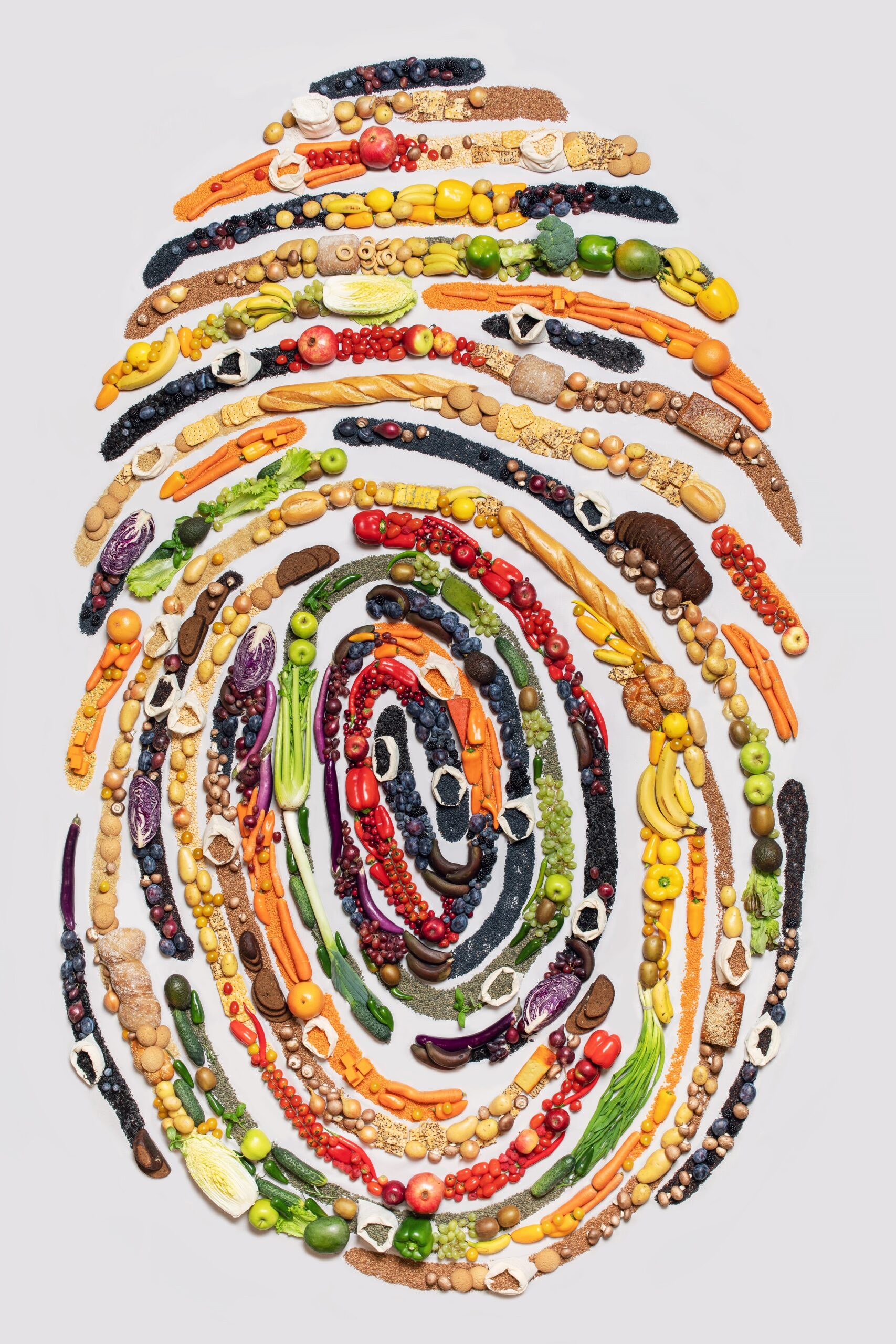We still pay little mind to how much food we discard every year, and the environmental footprint this has. Lithuanian artist Jolita Vaitkut?‘s installation ‘Foodprint’ reminds us that we too often discard products we could still consume, or simply give to those who are in need of food.
In order to create the installation, Jolita Vaitkut? made use of her own fingerprint, where her fingerprint lines are formed out of 60 kilograms of food – exactly how much the average Lithuanian citizen discards every year.
“While I have made installations out of food before, ‘Fingerprint’ was special. I was surprised to find out that in Lithuania, among the food products discarded most we find bread, milk, potatoes and bananas. I really believe that we could reduce the quantities of discarded food if each one of us took even a small step toward more responsible consumption, and making better use of our imagination in the kitchen,” Jolita Vaitkut? said.
The almost five-square-metre creation makes use of various grains, fruit and vegetables, bread, and dairy products. All of the products were carefully collected after ‘Foodprint’ was immortalised and handed over by the installation’s initiator Swedbank to the project’s partner in Lithuania, Maisto Bankas. It took twelve hours to put together the installation out of several tens of different products, and another hour to collect it all.
“This installation is also symbolic. When putting it together, I pondered on each product about how long it takes to travel to reach our tables, and I thought about how much work has been done, how many resources were needed. But it takes is just a few seconds to decide to discard the food. Do we truly value so little other people’s efforts, and the environment we live in?” the artist asked.
Recordings of the installation’s creation can be found in the following video: www.youtube.com/watch?v=RdPtu9K-QZU
According to Maisto Bankas head Simonas Gurevi?ius, one of the main goals for the organisation is to help stop food that is suitable for consumption to avoid being discarded.
“It has been calculated that around the world, about a third of all produced food is wasted, and this has painful social and environmental consequences. For example, around a third of the world’s population, 800 million people, are starving. Furthermore, by consuming more responsibly, we would reduce the wastage of limited resources, and would slow down climate change, deforestation, and the deterioration of the biosphere,” Maisto Bankas head Simonas Gurevi?ius said.
Data from a survey performed in Lithuania in November 2020 regarding food waste shows that there is a gap in understanding at what stage from the produce being cultivated to landing on the table that the most amount of food is lost. The survey, performed at the initiative of Maisto Bankas and its partner Swedbank, found that only every fourth respondent understood that the most wastage is in the home.
According to S. Gurevi?ius, household food waste is equal to the entire chain up to the home – farms, processing companies, transportation and retailers. However, thanks to a joint EU institution, state-owned company, business, private individual and NGO cooperation, profound positive changes may hopefully occur in the near future.




